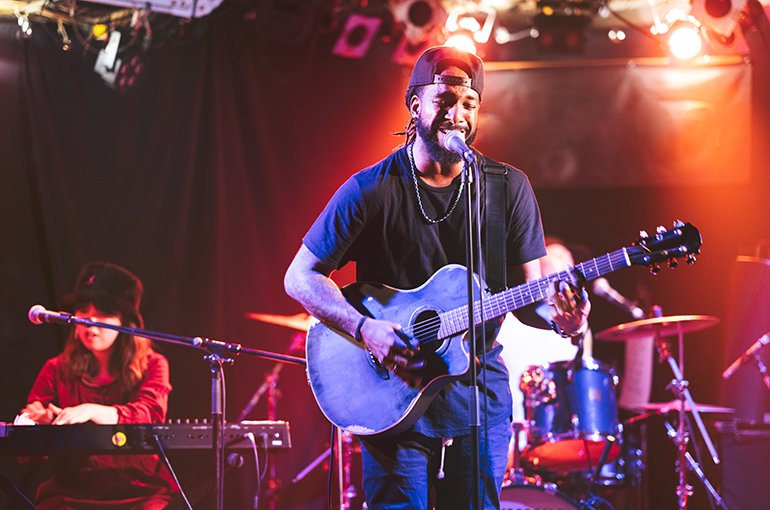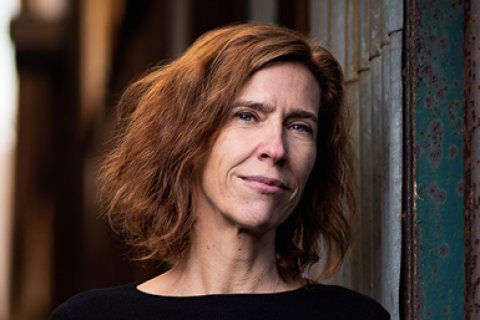Patronage in the pop sector is possible, but we need a change in mentality

Are music lovers prepared to support their favourite bands and musicians directly, in addition to buying a record or a ticket for a concert? This support (financial or otherwise) is called patronage and is common in the world of classical music, theatre and literature, but relatively unknown in pop music. Can this kind of support also flourish in pop music? What are the possibilities and obstacles and what role do fans and the government play?

These questions were addressed by pop makers, academics, policy makers, cultural funds, venues and festivals on 13 October 2021 during the Pop Music and Patronage workshop, organised by Professor of Patronage Studies Helleke van den Braber, the Boekmanstichting and platform Leve het Geven. The session showed that although there are many opportunities, a change of mentality is needed.
Can patronage flourish in pop?
“The session was meant for anyone who wanted to think about whether patronage can flourish in pop. The session brought together around 35 pop makers, academics, policy makers, cultural funds, venues and festivals. What do we need to make a model, that has already brought so much to other art forms, flourish in pop music?” Van den Braber explains.
Misconceptions about patronage
At the start of the meeting, the professor, together with musician and cultural scientist Rocco Hueting, cleared up a few misunderstandings about patronage. They emphasised that patronage is not about rich people supporting the ‘high’ arts; in pop, it is often groups of fans. It is not just about money: support also comes in non-tangible forms, for example in the form of recognition, support, access to networks, help in the form of a work space or time to work, or in the form of co-creating. And unlike regular earning models, the relationship between giver and receiver is aimed at a balanced exchange and swap. This means that it is important for pop makers to think about the gifts they have to offer their private supporters in return.
Patronage as a ‘third way’
Van den Braber points out that the position of creators is under pressure: “The corona crisis has made the sector and the government more aware of their precarious position: many creators have difficulty making ends meet and lack the scope and support to invest properly in their artistic growth and development. Without creators there would be no music, and without their music no festivals or venues - and yet it is notable that festivals and venues often have their funding, social embedding and legitimisation organised a lot better than the individual musicians and bands. For them, it is quite a quest to find the material and immaterial means to help them make music. During the working session, we thought about patronage as a ‘third way’: a source from which they could draw in addition to the support they receive from the government, and in addition to what they can get from the market.”
For patronage to succeed, a change in mentality is needed.
What is needed for successful patronage?
For patronage to succeed, a change in mentality is needed. “As a maker, you have to let it be known that you can use support,” argue Van den Braber and Hueting. In addition, you need admirers who “identify intensely with makers, are loyal and feel ‘owner’ of their making or oeuvre.” What is also important are moments of contact and exchange between fans and makers. And, makers and fans must be prepared to overcome their embarrassment to ask or receive. Van den Braber: “If you ask for help, you do so from a need for more support for your work and greater autonomy. At the same time, it evokes shame: what if I lose my independence, look like a beggar, or cannot give enough back to all those generous and loyal fans? How to ask with my head held high, how to give unencumbered? This shame you must overcome.”
Chair in Patronage Studies
A large number of students from Utrecht University and Radboud University, the two universities to which Van den Braber is affiliated, also participated in the session. “The theme really appeals to Master's students - in 2021 alone, five students graduated with me on the subject of pop music and patronage. De Staat keyboardist and cultural scientist Rocco Hueting, with whom I organised and introduced the working session, was the first in 2015. He graduated with a pioneering thesis on patronage in metal. That thesis was also the start of my own fascination. The chair in Patronage Studies that I have held at Utrecht University since 2020 now explicitly focuses on research into giving relationships in popular culture.”
Pop patrons and fan funding

That Van den Braber focuses on giving relationships in pop music is a conscious choice: “It gives me the opportunity to discover what patronage is, or can be, in the 21st century. Traditionally, big changes in giving to artists often occur at moments when cultural hierarchies are adrift, or in periods when the social position of artists, their idea of ‘true making’ or their income situation is under pressure. For me as a scientist, it is a fascinating question what happened when pop music emerged in the 1960s. The first private pop patrons immediately arose. Pop patronage gained momentum when, from 2010 onwards, ‘fan funding’ took off in pop music, and groups of fans started to take care of the careers of creators through one-off or monthly donations.”
Government subsidy for The State
At the same time, the big private funds (like the Prins Bernhard Cultuurfonds) also started to think about donating to pop, and the government also started to come into action. Substantial amounts of government subsidy have flowed to bands since 2015 - most notably to De Staat, the first band to receive large-scale, multi-year government support. And the corona crisis has driven further thinking about support for pop makers. History shows that it is in this kind of dynamic that patronage thrives.
Especially in turbulent times, creators and admirers feel the urgency to explore what they can do together to ensure that music can continue to sound.
Long Live Giving
The session showed that there are still plenty of opportunities and possibilities for the pop sector in the area of patronage. The results of the session give direction to the next steps that will be taken within the programme Leve het Geven (Long Live Giving) in order to further stimulate giving to the arts and culture sector, both to makers and institutions. Under the leadership of Voordekunst and supported by the Ministry of OCW, the programme investigates how the government can stimulate giving to individual makers.


